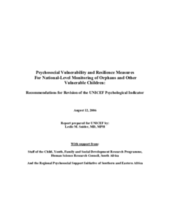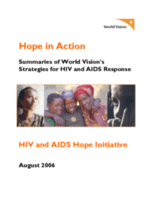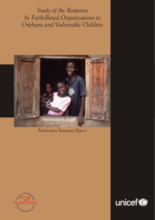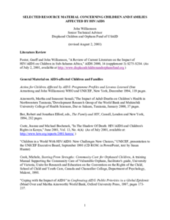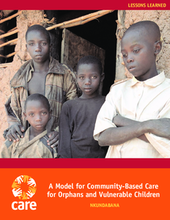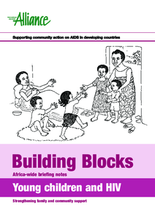Displaying 461 - 470 of 509
This document discusses the work contributing to the area of psychosocial measurement with regard to HIV/AIDS and provides samples of surveys that can be used in measurement.
Summarizes World Vision’s strategies for key areas of HIV/AIDS response.
A study that looks at the response of faith-based organizations in Kenya, Malawi, Mozambique, Namibia, Swaziland, and Uganda. The report contains statistical information, and details positive care practices to build on, and negative examples to avoid.
An updated list of literature and bibliographies concerning children and families affected by HIV/AIDS around the world. Most of the resources are focused on sub-Saharan Africa.
A manual outlining a detailed 3-day training program in how to respond to the psychosocial effects of disasters. Designed for use by psychosocial program administrators or trainers.
Identifies strengths and weaknesses of services offered to OVC in South Africa. A detailed list of recommendations suggests improvements to services.
A lessons learned document reviewing impacts of a community-based care and mentoring program for child-headed households in Rwanda.
A guide for faith-based organizations working in developing countries on issues related to orphans and vulnerable children. Contains examples of successful community-based and family support care programs throughout the world that are run by faith-based groups. Discourages the use of institutional care and orphanages.
This document provides an overview of the evolution of treatment family foster care in the US for youth with emotional or behavioral disorders, as an alternative to psychiatric hospitalization or long-term residential treatment.
Practical guidance on dealing with young children in the context of HIV/AIDS. Focuses on the developmental needs of children affected by HIV/AIDS. Also focuses on care and treatment provision for children who are HIV-positive.

